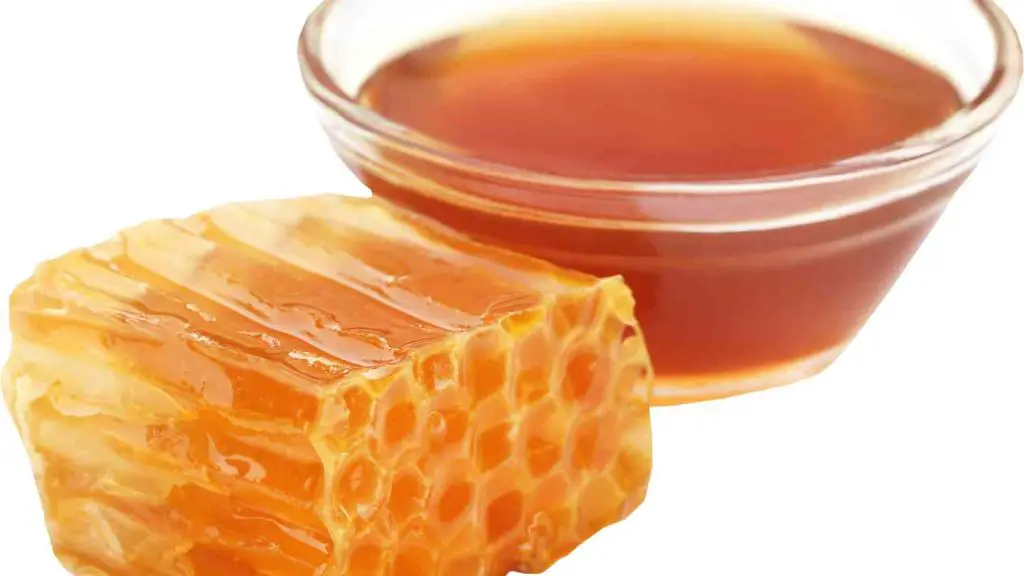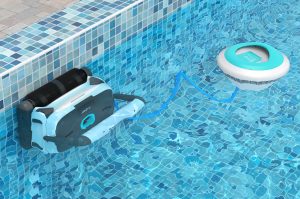Honey is a natural sweetener that has been used for centuries in cooking, baking, and even as a medicinal remedy. It is made by honey bees using nectar from flowers, and it is filled with vitamins, minerals, and antioxidants.
However, one question that often pops up in the minds of honey lovers is whether or not honey needs to be refrigerated. Read on and we promise that we will explore everything you need to know about storing honey, including how long honey lasts, how to tell if honey has gone bad, and the best ways to store honey to ensure it stays fresh.
Related:
Does Honey Need to be Refrigerated?
The short answer is, no, honey does not need to be refrigerated. Honey is a natural preservative, which means that it does not spoil easily. This is because honey has very low levels of water and high levels of natural sugars, making it difficult for bacteria and other microorganisms to grow. In fact, honey has been found in ancient Egyptian tombs and is still edible after thousands of years.
While you don’t need to refrigerate honey, it is important to store it properly to ensure it stays fresh. Honey should be stored in a cool, dry place, away from direct sunlight and heat. Exposure to heat and sunlight can cause honey to crystalize and lose its flavor and nutritional benefits.
How Long Does Honey Last Once Opened?
If stored properly, honey can last indefinitely. However, once honey is opened, it can start to lose its flavor and freshness. This is because honey is hygroscopic, meaning it can absorb moisture from the air, which can lead to fermentation and spoilage.
On average, opened honey can last for several months, but it is important to check for signs of spoilage before consuming it. If your honey has a strange odor, flavor, or appearance, it may have gone bad and should be discarded.
Is it Safe to Store Honey at Room Temperature?
Yes, it is safe to store honey at room temperature. In fact, honey is best stored at room temperature, as refrigeration can cause honey to crystalize and become thick and grainy.
If you are concerned about the quality of your honey, you can also store it in a pantry or cupboard with a temperature between 50-70°F. This will help keep your honey fresh and prevent it from going bad.
Does Honey Expire?
While honey does not technically expire, it can lose its flavor and nutritional benefits over time. This is because honey is a natural food that is susceptible to environmental changes, such as temperature and humidity.
However, if stored properly, honey can last indefinitely. Honey should be stored in a cool, dry place, away from direct sunlight and heat. Exposure to heat and sunlight can cause honey to crystalize and lose its flavor and nutritional benefits.
How Do You Know if Honey has Gone Bad?
There are a few signs that your honey may have gone bad. If your honey has a strange odor, flavor, or appearance, it may have gone bad and should be discarded.
Honey that has gone bad will have a yeasty or sour smell and taste. It may also have a crystallized or gritty texture. Additionally, honey that has been stored improperly or for too long may develop mold or fermentation, which can cause it to look cloudy or dark.
How Long Can Honey Last Without Spoiling?
If stored properly, honey can last indefinitely. Honey has been found in ancient Egyptian tombs and is still edible after thousands of years. This is because honey is a natural preservative, containing very low levels of water and high levels of natural sugars, which makes it difficult for bacteria and other microorganisms to grow.
Can I Eat Expired Honey?
While honey does not technically expire, it can lose its flavor and nutritional benefits over time. If your honey has a strange odor, flavor, or appearance, it may have gone bad and should be discarded.
It is safe to eat expired honey as long as it has not spoiled or developed mold or fermentation. However, it may not taste as good or provide the same nutritional benefits as fresh honey.
Is it Safe to Eat Raw Honey?
Yes, it is safe to eat raw honey. In fact, raw honey is believed to have more nutritional benefits than processed honey. Raw honey has not been heated or filtered, which means it contains more vitamins, minerals, and antioxidants than processed honey.
Raw honey is also believed to have antibacterial and antifungal properties, making it a popular natural remedy for coughs, colds, and other respiratory infections. However, it is important to note that raw honey should not be given to infants under one year of age, as it may contain small amounts of bacteria that can cause infant botulism.
Why Does Honey Turn Dark?
Honey can turn dark due to a variety of factors, including exposure to heat, light, and moisture. When honey is exposed to air, it can also oxidize, causing it to darken in color.
While dark honey does not necessarily indicate that it has gone bad, it may have a stronger flavor and contain more antioxidants than lighter honey. Some types of honey, such as buckwheat honey, naturally have a darker color due to the type of flowers the bees collected nectar from.
What is the Benefit of Raw Honey?
Raw honey is believed to have more nutritional benefits than processed honey. Raw honey has not been heated or filtered, which means it contains more vitamins, minerals, and antioxidants than processed honey.
Raw honey is also believed to have antibacterial and antifungal properties, making it a popular natural remedy for coughs, colds, and other respiratory infections. Additionally, raw honey has been found to help with digestive issues, reduce inflammation, and even improve athletic performance.
How Do You Store Pure Honey at Home?
The best way to store pure honey at home is to keep it in a cool, dry place, away from direct sunlight and heat. Honey should be stored in an airtight container, such as a glass jar, to prevent moisture and air from entering.
Additionally, it is important to avoid storing honey near sources of moisture, such as the dishwasher or sink. Exposure to moisture can cause honey to ferment and spoil.
How Can You Tell if Honey is Real?
There are a few ways to tell if honey is real. Firstly, real honey is usually thicker and more viscous than fake honey. Real honey also tends to crystallize over time, while fake honey remains liquid.
Additionally, real honey will usually have a complex flavor profile and aroma, while fake honey tends to taste overly sweet and have a generic flavor.
At What Temperature Does Honey Become Toxic?
Honey does not become toxic at any temperature. However, honey that has been heated to high temperatures can lose its nutritional benefits and flavor. Exposure to high temperatures can cause honey to caramelize and become darker in color, but it will not become toxic.
Does Pure Honey Freeze?
Yes, pure honey can be frozen. Freezing honey can actually help preserve its freshness and prevent it from crystallizing over time. However, it is important to note that frozen honey may have a slightly different texture and consistency once thawed.
What is the Color of Pure Honey?
The color of pure honey can vary depending on the type of flowers the bees collected nectar from. Generally, lighter-colored honey is milder in flavor, while darker-colored honey is stronger and has a more complex flavor profile.
Some common colors of pure honey include golden, amber, and dark brown. Buckwheat honey, for example, is known for its dark color and distinctive flavor. It is important to note that the color of honey does not indicate its quality or nutritional benefits.
final thoughts
If you have a bottle of honey at home or your planning to buy one, you should note that honey almost never gets bad. While you can use it indefinitely, it’s important to store it properly to ensure it’s always safe for consumption for you and your family.
You should have no problem storing your honey in your kitchen cabinet in any weather without refrigeration. And if you are in doubt about whether to put your honey in the fridge alongside other food items, you can always refer to this guide for help.






